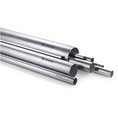What to avoid in stainless steel sink?
Stainless steel sinks have become immensely popular in modern kitchens due to their durability, aesthetic appeal, and ease of maintenance. However, there are certain things that should be avoided to ensure the longevity of a stainless steel sink. In this article, we will explore the various factors that can potentially damage stainless steel sinks and provide valuable insights on how to prevent such damage. So, let''s dive in!
1. Harsh Chemicals
Stainless steel sinks are known for their resistance to stains, but certain chemicals can still damage their surface. Harsh chemicals like bleach, ammonia, and chlorine can cause discoloration, pitting, and even corrosion on the stainless steel. It is important to avoid using such chemicals for cleaning purposes. Instead, opt for mild detergents or specialized stainless steel cleaners that are specifically designed for use on these sinks. Regular maintenance with gentle cleaning agents will ensure that your stainless steel sink remains in pristine condition.
2. Steel Wool and Abrasive Cleaning Pads
Although stainless steel is a durable material, it is not impervious to scratches. Scratches not only ruin the sink''s appearance but also provide a breeding ground for bacteria. Therefore, it is crucial to avoid using steel wool or abrasive cleaning pads on the surface of a stainless steel sink. These materials can leave deep scratches, compromising the integrity of the sink. Instead, use soft sponges or microfiber cloths to clean the sink gently. If stubborn stains or marks persist, try using a non-abrasive cleaner along with a soft cloth.
3. Leaving Metal Objects in the Sink
Leaving metal objects, such as pots, pans, or cutlery, in the sink for an extended period can lead to potential damage. Stainless steel sinks are vulnerable to rust and corrosion caused by prolonged exposure to moisture. When metal objects are left wet on the surface, it can create a chemical reaction that ultimately results in staining or even pitting. Therefore, it is advisable to promptly remove metal items from the sink and dry the sink thoroughly after each use. This simple practice will prevent any unnecessary damage and maintain the sink''s shine.
4. Hard Water Stains
Hard water contains mineral deposits that can leave unsightly stains on stainless steel sinks over time. These stains are particularly visible in areas with poor water quality. To prevent hard water stains, it is essential to wipe down the sink after each use and thoroughly dry it to avoid mineral buildup. If hard water stains do occur, a mixture of white vinegar and water can be used as a natural cleaning agent to dissolve the mineral deposits. Regular maintenance with vinegar will help keep your sink looking spotless.
5. Scrubbing Against the Grain
Every stainless steel sink has a grain or brush marks that give it a distinct visual appearance. It is important to be mindful of this grain when cleaning or scrubbing the sink. Scrubbing against the grain can leave permanent scratches on the stainless steel surface, which may be difficult to remove. Always make sure to scrub along the grain using circular or back-and-forth motions. This will minimize the chances of scratching and maintain the sink''s polished finish.
6. Extreme Heat
While stainless steel sinks can withstand high temperatures, exposing them to extreme heat for prolonged periods can cause damage. Placing hot pots or pans directly from the stove or oven onto the sink''s surface can create "heat spots." These heat spots can discolor the steel and, in severe cases, even cause warping or melting. To avoid this, always use pot holders, trivets, or heat-resistant mats when placing hot items on the sink. This small precaution will protect your sink from heat-related damage.
7. Cutting or Chopping Directly on the Sink
Stainless steel sinks are not designed for cutting or chopping directly on their surface. Sharp knives or heavy objects can cause scratches or dents in the sink, making it susceptible to rust and corrosion. Always use a cutting board or any other suitable surface for food preparation. This practice will not only preserve the sink''s integrity but also prolong the life of your knives by preventing premature dulling.
8. Heavy Impact
While stainless steel sinks are generally resistant to impact, heavy objects or accidental drops can dent or damage the sink. Be cautious while handling heavy cookware, utensils, or appliances near the sink to avoid any accidental impact. Prevention is better than cure when it comes to maintaining the condition of your sink, so be mindful of the potential consequences of forceful impacts and take necessary precautions.
Conclusion
Stainless steel sinks are a popular choice for kitchens due to their durability and aesthetic appeal. To maximize their lifespan and keep them looking pristine, it''s important to avoid harsh chemicals, abrasive cleaning materials, leaving metal objects wet in the sink, hard water stains, scrubbing against the grain, extreme heat, cutting directly on the sink, and heavy impacts. By following these guidelines and implementing proper maintenance practices, you can ensure that your stainless steel sink remains a beautiful and functional centerpiece in your kitchen for years to come.




